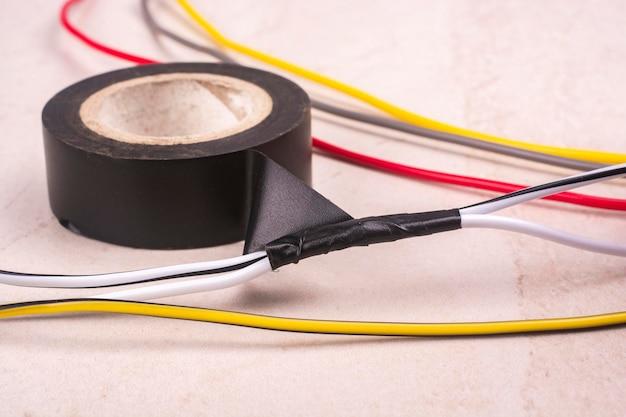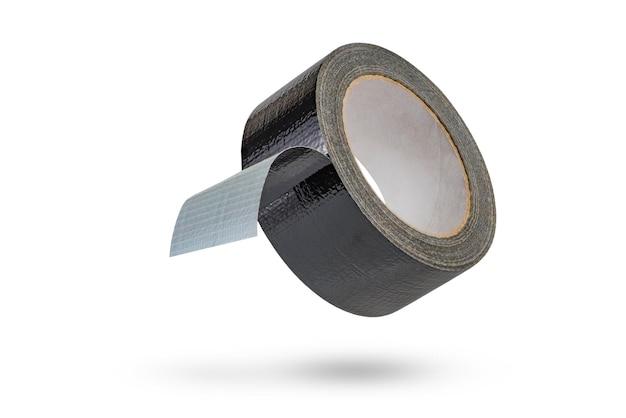Electrical tape is a handy tool that is commonly used in various electrical applications. Whether you’re fixing a loose wire, insulating connections, or labeling circuits, electrical tape is the go-to solution. But have you ever wondered how long it actually lasts?
In this blog post, we will dive into the longevity of electrical tape, discussing its durability, heat resistance, waterproof properties, and more. We’ll also address common questions like whether electrical tape is the same as duct tape, if it’s safe to put over exposed wires, and how much current it can handle. So, if you’re curious about the lifespan of electrical tape and the role it plays in electrical safety, keep reading!
Let’s explore the world of electrical tape and uncover all the important details you need to know.
How Long Does Electrical Tape Last
Electrical tape is a superstar when it comes to DIY electrical projects. It’s the go-to tool for insulating wires, protecting connections, and adding an extra layer of safety to your electrical work. But how long does this magical tape last? Let’s unravel the mystery and find out!
The Shelf Life of Electrical Tape
When it comes to buying electrical tape, look at the packaging label for an expiration date. Just like that pint of milk in your fridge, electrical tape also has a shelf life. Typically, electrical tape can last for about five years from the date of manufacture. So, if you stumble upon a dusty roll at the back of your toolbox, it’s time to bid farewell and get a fresh one.
Life Expectancy in the Field
Now that we have tackled the shelf life, let’s dive into the life expectancy of electrical tape once it’s put into action. The lifespan of electrical tape can vary depending on various factors like usage, environment, and even the tape quality itself. But fear not, dear reader – we have some ballpark figures for you!
-
Standard Electrical Tape: Regular electrical tape is pretty reliable and can typically last for several years in the field. A well-applied tape job should hold up for at least a couple of years without any issues.
-
High-Quality Electrical Tape: If you’re ready to splurge a bit on the good stuff, high-quality electrical tape can give you even better performance. These tapes are designed to withstand harsh environments, temperature fluctuations, and even some wear and tear. With a quality tape and proper installation, you’re looking at a lifespan that can easily surpass the five-year mark.
-
Outdoor Applications: If you’re using electrical tape for outdoor projects, its longevity may be influenced by the sun’s powerful UV rays. Over time, exposure to UV light can lead to tape degradation. However, fear not, for there are specially designed weather-resistant options available that can withstand the scorching sun and still keep your wires safe and sound.
Signs of Wear and Tear
Just like your favorite pair of jeans, electrical tape will eventually show signs of wear and tear. Keep an eye out for these warning signs:
-
Peeling or Curling: If the edges of your electrical tape start to peel or curl up, it’s time to retire that old roll and bring in a fresh buddy.
-
Loose Adhesion: When electrical tape loses its stickiness and becomes loose, it’s best to kiss it goodbye and protect your electrical connections with a new wrap.
-
Color Fading: If your tape’s vibrant color starts to fade into a dull shade, it’s an indicator that the tape might not be performing at its best anymore. Time to say goodbye and welcome a new roll.
In Summary
So, how long does electrical tape last? Well, it depends! With a typical lifespan of a few years and some high-quality options lasting even longer, electrical tape is a trusty companion in your electrical adventures. Just remember to keep an eye out for signs of wear and tear, and don’t hesitate to give old tape the boot when it’s past its prime. Happy taping, and may your electrical connections stay safe and snug!
FAQ: How Long Does Electrical Tape Last
Is electrical tape the same as duct tape?
Nope, these two adhesive heroes may look and feel similar, but they’re as different as night and day. While electrical tape is specifically designed for electrical purposes, duct tape is more like a handyman’s duct-tape-it-all solution. Using electrical tape instead of duct tape for electrical insulation is as adventurous as using a toothpick to build a treehouse.
Is it safe to put electrical tape over exposed wires?
Absolutely! Electrical tape is your Clark Kent in the face of exposed wires. It provides a safe and secure shield, ensuring those bare wires are tamed and contained. Just make sure to wrap the tape around the exposed area tightly and evenly—no loose ends here!
How heat-resistant is electrical tape?
Picture this: your electrical tape, sweat dripping down its brow as it bravely withstands temperature extremes. Electrical tape generally has a heat resistance of up to 176°F (80°C). So keep the fire-breathing dragons away, and your electrical tape will be just fine.
Is electrical tape waterproof?
Let me put it this way: if electrical tape were a superhero, it would happily dive into a pool while wearing a cape. Most electrical tapes are built to resist water intrusion, making them the Aquaman of the electrical world. Rain showers, splashes, or even unexpected water balloon fights won’t make it flinch.
What do the different colors of electrical tape mean?
Think of electrical tape like a rainbow of flavors, each with its own unique meaning. Black tape is your good ol’ default, suitable for general insulation. Red tape signifies a high-temperature rating, ideal for hot situations. Green or bare copper tape? Welcome to the ground wire club, where safety rules the land. And yellow/green combo tape? That’s the international symbol for earthing.
Why is electrical tape not sticky?
Let’s not be too hard on electrical tape—it’s not neglecting its sticky duties intentionally. Electrical tape has a non-adhesive side to make it easier for you to handle and apply. It’s like a superhero’s secret identity: you know the stickiness is always there, ready to save the day, but it prefers to remain incognito until needed.
How much current can electrical tape handle?
Oh, electrical tape can handle a fair amount of current. With its insulating superpower, it can typically withstand up to 600 volts of electrical zing while keeping you safe from electrical shocks. Just remember, though, electrical tape won’t make your electrical circuits feel invincible. Always respect their limits.
Does electrical tape dry out?
Imagine electrical tape sunbathing on the sandy beaches of a tropical paradise, soaking up the sun but somehow losing its stickiness in the process. Well, thankfully, electrical tape, being the responsible superhero it is, doesn’t dry out easily. As long as you store it away from extreme heat and sunlight, your tape will remain supple and sticky for years to come.
Is electrical tape safe for 120v?
Oh, absolutely! 120v might feel like an epic adventure for electrical tape, but it’s well within its comfort zone. Electrical tape is more than capable of handling this voltage without breaking a sweat. Just remember to apply it properly and cover any exposed wires, and your electrical tape will give you a thumbs-up.
Is electrical tape permanent?
Well, if by permanent you mean “sticky forever and never lets go,” I’m afraid electrical tape falls a bit short. It’s more like a trusty companion for your temporary needs. Over time, its adhesive power may weaken, so don’t be afraid to explore more permanent solutions when you’re ready to settle down.
Is it OK to tape wires together?
Oh, electrical tape loves playing matchmaker for wire connections! It’s like the Cupid of the electrical world, carefully joining wires and ensuring a secure bond. Just make sure you twist the wires together before taping to create a solid connection. Spread the love, electrical tape style!
How insulating is electrical tape?
Ah, insulation—the bread and butter of electrical tape. Electrical tape does an admirable job of keeping those wires bundled up and safe from harm. It provides a reliable barrier against electrical currents, preventing accidental shocks and sparks. So go ahead and wrap your wires in that cozy tape embrace.
Can electrical tape catch fire?
Fear not, my friend! Electrical tape knows how to keep its cool, even in the face of fire-breathing dragons. While it may scorch and smolder under extreme heat, it won’t burst into flames. Just remember that electrical tape is no match for fires, so keep it away from open flames or any pyrotechnic stunts you’re planning.
Is electrical tape enough?
Ah, the age-old question—is electrical tape a one-stop-shop for all your electrical needs? While electrical tape is an electrical superstar, tackling insulation and protection with gusto, it’s always wise to check the codes and regulations in your area. Sometimes you may need additional measures to ensure the utmost safety, like junction boxes or conduit.
What makes electrical tape different?
Ah, the powers that set electrical tape apart! Electrical tape has magical insulating properties, hugging those wires tightly and providing a secure barrier against electrical shocks and shorts. Unlike its less electrifying cousin, duct tape, electrical tape is specifically designed for electrical applications, making it the true champion of the wiring world.
How do you fix an exposed wire without electrical tape?
Fret not, my friend, for there are alternatives to save the day when electrical tape is nowhere to be found. You can use heat shrink tubing, wire connectors, or wire nuts to provide a safe covering for those exposed wires. A little creativity goes a long way in the world of electrical solutions!
Does electrical tape carry current?
Oh, no! Electrical tape is as insulating as a fortress made by the Wizard of Insulation himself. It’s designed to keep electrical currents contained and prevent them from escaping into the surrounding environment. So rest assured, your electrical tape won’t be passing any electric juice beyond its tight embrace.
Why is electrical tape black?
Well, electrical tape likes to channel its inner superhero—imagine Batman or Black Widow, all mysterious and ready to save the day. Black is the tape’s go-to color, often associated with electrical insulation and safety. It’s like the tape’s way of saying, “I’m here to keep you protected, stealthily and stylishly.”
Can I leave unused wire in the wall?
Oh, my dear friend, unused wires are like potential hidden surprises waiting to catch you off guard. It’s best to remove and properly dispose of any unused wires to avoid confusion and potential hazards. Don’t let those wires play hide-and-seek behind your walls—they’re better off outside, exploring new adventures.
Now that you’re armed with the superpowers of electrical tape, go forth and conquer any electrical conundrum that comes your way! Remember, safety is key, and a little bit of tape goes a long way.

